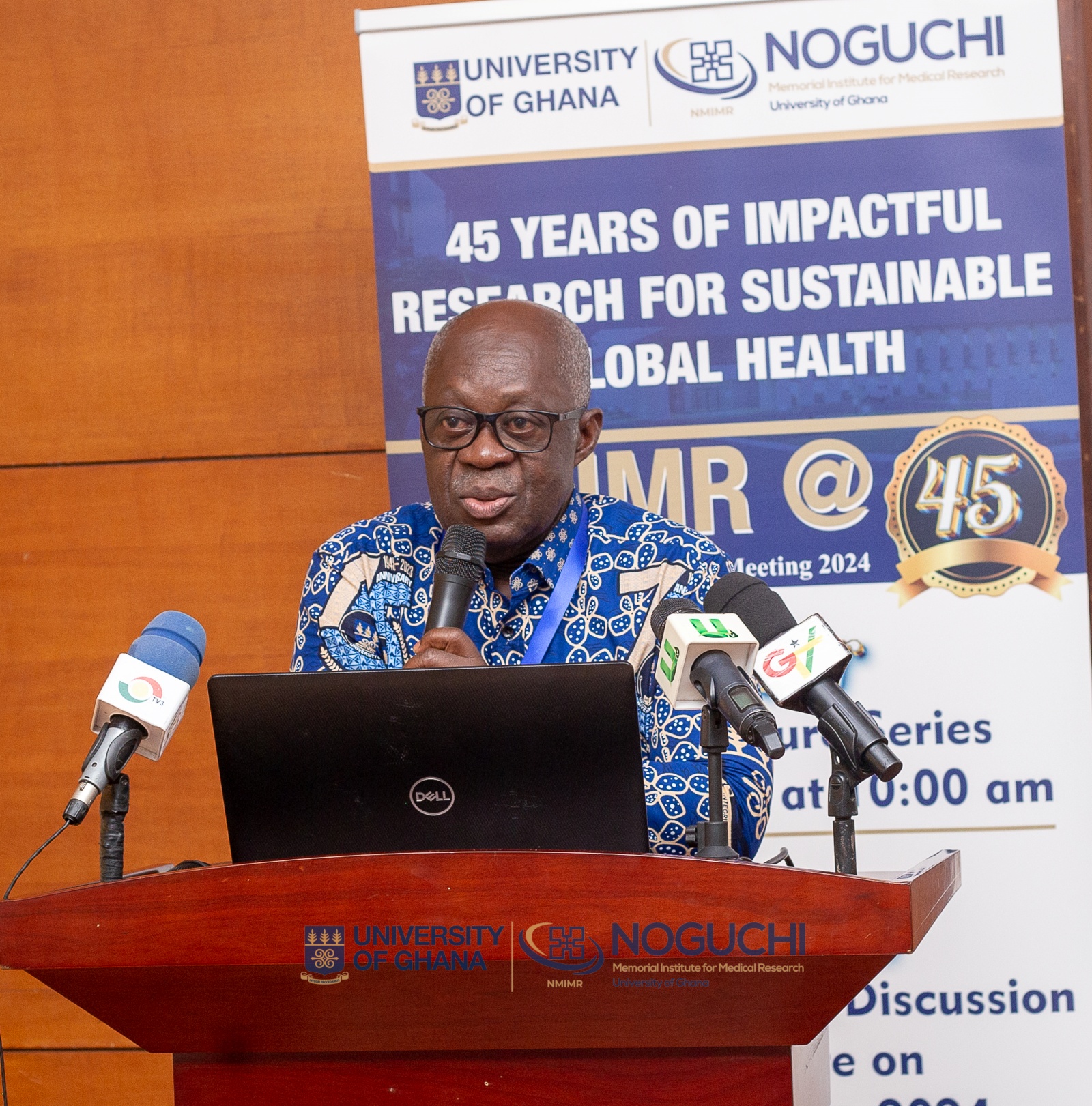Former NMIMR Director Prof. Koram Calls for Stronger Community Efforts to Eliminate Malaria in Ghana

Epidemiologist and a former Director of the Noguchi Memorial Institute for Medical Research (NMIMR), Prof. Kwadwo Ansah Koram, has stressed the need for intensified community action to fight malaria.
Speaking at the third in a series of lectures to mark the 45th anniversary of the Institute on the theme "45 Years of Impactful Research for Sustainable Global Health," Prof. Koram urged communities to support malaria elimination by reducing mosquito breeding sites around their homes.

“Malaria remains a significant public health challenge in Ghana,” Prof. Koram said, referencing data from 2020, which reported over 241 million global cases and approximately 627,000 deaths. He pointed out that malaria prevalence is particularly high among children in Ghana’s forest zones and stressed that community action was key to addressing this issue effectively.
Prof. Koram also discussed NMIMR’s extensive research on malaria over the years, which he noted has provided essential data to support Ghana’s malaria control and elimination strategies. “Our studies on malaria span across epidemiology, entomology, and molecular biology, providing a solid foundation for interventions,” he explained.
The former Director highlighted the Institute's establishment of sentinel sites across ten regions, which monitor the efficacy of anti-malaria drugs such as Artesunate Amodiaquine and Artemether Lumefantrine. "This community-based approach enables us to understand drug efficacy and respond to resistance patterns," he said.
The renowned Epidemiologist also revealed that some studies by the Institute have been key to identifying transmission-blocking studies, which he considered progress as part of efforts to develop malaria vaccines. “Our work has advanced vaccine development and strategies to block malaria transmission,” he added, noting that this work supports both national and global malaria efforts.

NMIMR researchers, he explained, are studying parasite diversity, which could impact malaria immunity and transmission, as well as drug resistance to target responses more effectively.
Prof. Koram praised NMIMR’s role in capacity building, pointing out that it has trained health professionals and researchers across all levels, from undergraduates to post-doctoral fellows across Africa and beyond. “The training of our field technicians in insecticide resistance monitoring is crucial to the National Malaria Elimination Programme,” he said, pointing to this work’s impact on Ghana’s vector control efforts.
He further highlighted NMIMR’s partnership with local and international organisations, which has bolstered its capacity for malaria control research. Through these collaborations, he noted, the Institute has developed cost-effective tools for tracking drug resistance, studying malaria parasite genetics and testing interventions such as insecticide-treated nets.

Expressing his gratitude, Prof. Koram acknowledged the support of these partnerships in NMIMR’s research achievements. “These collaborations have been invaluable to our work in addressing Ghana's health challenges,” he remarked.
In closing, Prof. Koram encouraged young researchers to explore new areas in malaria research, such as mosquito behavior studies. “Everyone has a part to play,” he said. “Through research and community action, we can envision a future where malaria no longer burdens our communities.”
In brief remarks to open the lecture, Prof. Michael Ofori of the Department of Immunology highlighted the Institute's extensive contributions to malaria research since its inception, noting that "the control, elimination, and management of malaria in Ghana cannot be written without mentioning NMIMR."
He also mentioned other activities planned for the anniversary celebration, including a symposium and a panel discussion.
The lecture was attended by researchers, research fellows, Institute personnel and health practitioners.